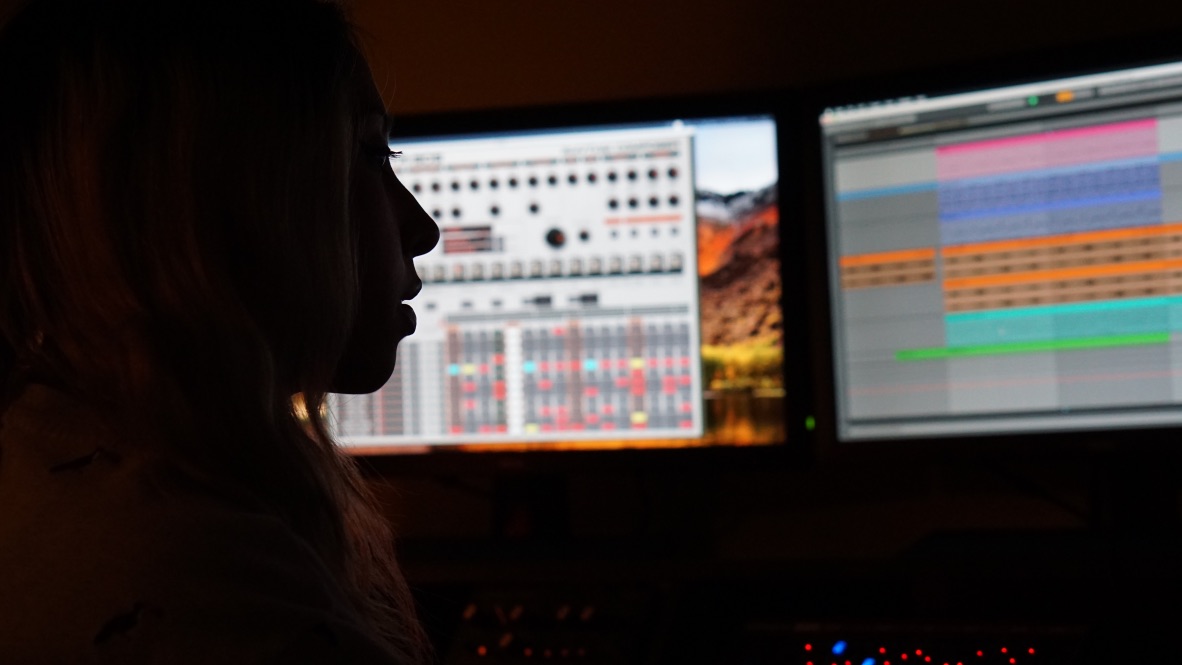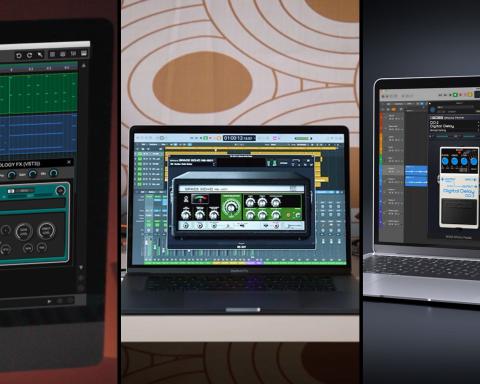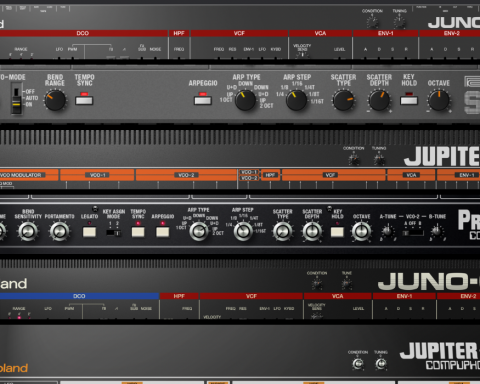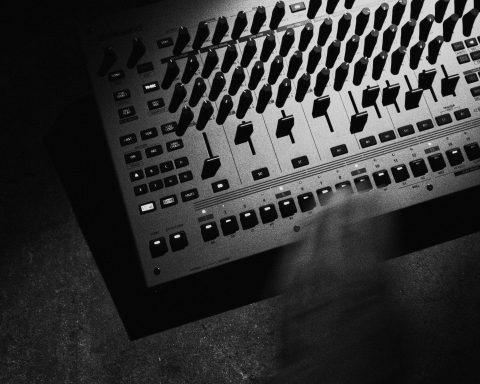Roland Cloud’s collection of virtual synthesizers, drum machines, and sampled instruments has been a go-to tool for producers, electronic artists, and beatmakers since its inception. In celebration of Roland Cloud’s latest additions, here are five tactics to enrich your DAW sessions with classic Roland sounds.
1. Drop in the TR-808 for Seismic Low-end
Whether you are working on modern R&B grooves or frothy pop tracks, the gargantuan 808 kick has become a key component for modern music fans—so much so that many simply associate booming bass with the 808. While there are many soundalikes on the market, using Roland Cloud’s TR-808 as your primary drum sound, or layering in an 808 kick, is a surefire way to add bottom end that is both contemporary yet classic. Plus, Roland Cloud’s 808 has bonus features like “Drag and Drop” MIDI. See how that function works in the video below.
2. Add Waves of Thick ’80s Texture with the JUPITER-8
The massive sounds of the JUPITER-8 are perfect for everything from atmospheric indie rock to post-punk. For decades, artists like Howard Jones and Duran Duran relied on the King of Planets to color their sound on tunes like “What is Love” and “Save a Prayer,” respectively.
Pull up a patch like “1981 Fuzzy Fifth” or “PL Ploy Stack” to hear the dimensions a JUPITER-soundscape brings to the table. Roland Cloud’s version of the iconic synth even boasts some new functionality and pairs perfectly with controllers like the SYSTEM-8. Check out this video for a peek into the JUPITER-8 universe.
3. Double Your Pleasure with a JUNO-106 Bassline
With the popularity of Stranger Things and ’80s-centric acts like M83 and CHVRCHES, it’s no surprise Roland’s JUNO-106 keeps popping up in the cultural conversation.
One great method for adding a richer tone to your low end is doubling bass sounds with a JUNO-106. Try duplicating your bass track with a JUNO playing the same MIDI information to your Pro Tools session. Watch the sound grow exponentially when you combine the JUPITER-8 with a SYSTEM-8. If you’re feeling daring, pitch the second bassline up or down an octave to produce powerful effects.
4. Paint Your Track with a Cinematic D-50 Patch
The D-50 was unlike any instruments that came prior. Its DCB (Digital Circuit Behavior) modeling allowed for a cinematic array of sounds. Patches like “Fantasia” and “Digital Native Dance” are the stuff of ’80s and early-’90s dreams.
Roland Cloud’s D-50 has all the familiar sounds of the original hardware as well as some extra fun nuggets. For even more fun, explore the rich “Beyond Fantasia” patch collection, a new batch of textures destined to take the instrument to places unknown.
Listen to how contemporary electronic artists like ANDR3X and Mystery Skulls use the D-50 in their tracks. Then, picture what you could do within a session with the instrument. Maybe instead of bringing in that third guitar layer, use a “Beyond Fantasia” patch with Multi-Delay to broaden your scope—without chewing up the frequency spectrum
5. Boost a Song’s Energy with the TR-909’s Iconic Swing
Ever September, 909 Day shines a light on the enduring qualities of this classic instrument. From the grimy industrial vibes of Skinny Puppy to the smooth swing of Madonna’s “Vogue,” few genres are devoid of the silver and gray beatmaker. If your tastes veer to the esoteric side of the dancefloor, Tangelene Bolton will inspire your with her 909 grooves sure to lead you to rhythmic revelations.
Roland Cloud is a growing collection of virtual instruments, creative applications, and sound expansions for use in modern workflows. Producer, beatmaker, gigging musician, or just getting started — you’ll find something to inspire you. From techno, acid house, and ambient to trap, rock, and hip hop, Roland Cloud has instruments and tools that will elevate your tracks.







